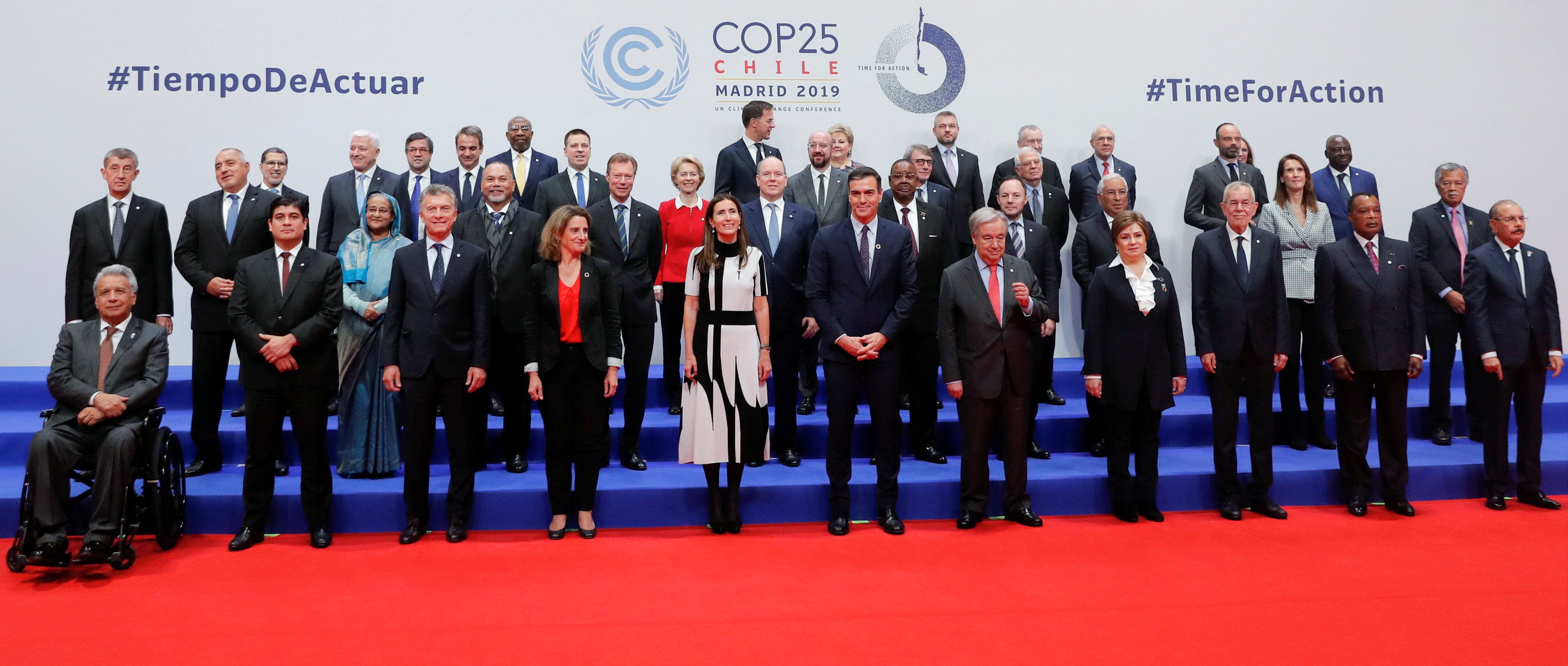This week, delegates from around the world are in Madrid to try – yet again – to hammer out a plan to address climate change. Four years ago, world leaders agreed in Paris to cap and then reduce greenhouse gas emissions to stave off the worst effects of global warming, but they left the details TBD. Today, CO2 levels are still rising, President Donald Trump has begun the process of withdrawing the US from the Paris Accord, and other governments haven't yet agreed on how to get emissions down. Spoiler alert: the meetings in Madrid are unlikely to change that.
The reasons are familiar by now: Rich countries are reluctant to give up the cheap and/or convenient coal, oil, and gas that power their economies. Poorer countries think it's unfair that they should have to swear off fossil fuels before they've had a chance to grow rich themselves. And policies like fuel taxes or carbon pricing, which are meant to cut emissions and boost renewable energy, are politically unpopular almost everywhere in the world.
But a more interesting question is: What could disrupt this political dynamic? Here are three ways the logjam could break:
1. Innovation: There's no one silver bullet here, but breakthroughs in wind, solar, energy storage, carbon capture, and new approaches to nuclear power all have the potential to bring costs of cleaner energy down. And don't forget artificial intelligence, which can make all of these technologies work better. As the digital revolution rolls on, and the pace of technological breakthroughs quickens, it could shake up the politics of climate change by lowering one of the key hurdles to a political agreement on climate – the cost of transitioning away from fossil fuels – much faster than expected.
2. The return of "great power competition": A new focus on strategic economic competition with China – which is directing massive state investments towards clean energy tech both at home and abroad – is pushing Western governments to more actively invest in green technologies themselves. Brussels' new "Green Deal" (a plan to make Europe climate neutral by 2050, while creating millions of new jobs and transforming its economy along the way) isn't just about cleaner energy, it's also partly about preventing French and German jobs from being siphoned off by Chinese companies that are angling to produce the next generation of wind turbines and smarter power grids. Even the US might eventually come around to a "Moon shot" project to boost investment in new energy technologies if the competition with Beijing gets serious enough.
3. A (financial) climate crisis: While many politicians seem unmoved by alarming headlines about raging wildfires and the potential for "catastrophic" global warming, it'll be a lot harder to ignore climate change when a natural disaster sparks a financial crisis. Think: insurers refusing to rebuild California towns torched by wildfires, or a city unable to take out insurance or borrow in the bond market after a major hurricane. When the people with the money start to get concerned enough about climate change, the politicians will follow.
Of course, relying on a huge technology breakthrough or another plot twist to get leaders to agree to a workable plan for tackling climate risks isn't a great strategy. But it may be the best shot the planet has to break the political deadlock that is allowing the world to grow hotter and hotter.
